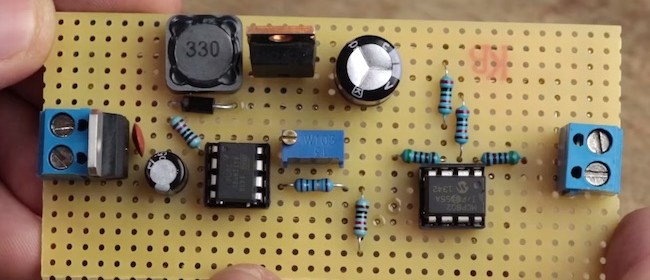DIY Buck-Boost converter

|
|
A buck-boost (also known as step-down and step-up) converter is a type of DC-to-DC converter that combines the principles of the buck and boost switched mode power supplies in a single circuit. What this means is the input voltage could be either higher or lower than the desired output voltage. The Buck-boost converter is very useful in battery-powered systems, where the battery voltage can vary quite a bit depending upon its charge condition and usage, to derive a stable DC supply for an electronics circuit.
GreatScott‘s new Youtube video tutorial explains the basics of Buck-Boost converters and shows how to build a 12V Buck-Boost converter using discrete components like MOSFETs, inductors, and Opamp. The square wave of varying duty cycle, which is a key component of any buck and boost converter, is generated by the ATtiny85 MCU. The output of this buck-boost converter is inverted, and therefore, an Opamp circuit is required to correct the polarity of the output for the feedback signal that goes back to the MCU. Based on the magnitude of the feedback voltage, the ATtiny85 controls the duty cycle of the square wave to stabilize the output voltage.
|
|
